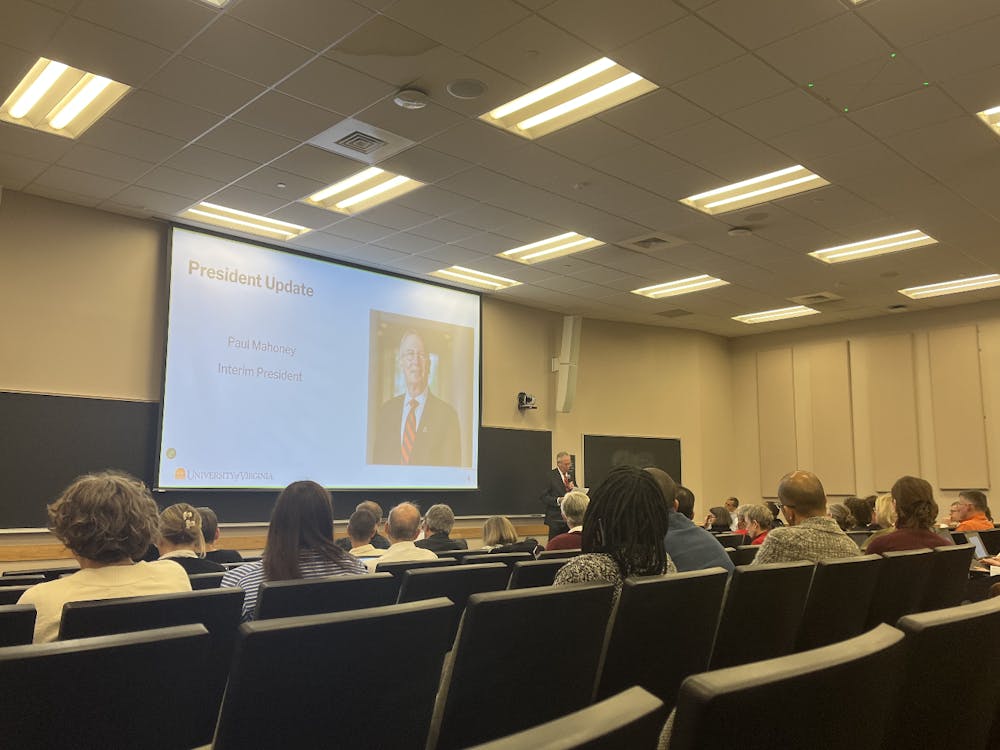University Police and the Charlottesville Fire Department responded to a fire alarm tripped by an unknown individual at Clemons Library around 1:40 p.m. yesterday, according to Leland Deeds, coordinator of access services at Clemons.
University Police and the City Fire Department arrived soon after to evacuate and inspect the building. After deciding that nothing was wrong and that the building was safe, they turned off the alarms and allowed students and staff to reenter, Deeds said.
The last fire alarm occurred midday on March 4, the same day that a bomb threat occurred at Wilson and Old and New Cabell Halls. There was no correlation between the fire alarm at Clemons and the bomb threat, according to Deeds.
"We have no information on the cause, but it was more associated with the side building rather than Clemons," he said.
Employees at Clemons described their responses to yesterday's alarm.
"I didn't really have a big reaction because it's gone off before," fifth-year Education student Lavely Miller said. "Someone just came up and asked students to leave, so we all left."
Some students said they did not immediately respond to the alarms, displaying minimal concern.
"I didn't do much," said Graduate Arts and Sciences student Michael Decker. "It gave me a chance to get coffee. I thought fire alarms were for high school, not for here."
Library Administrative Assistant Susan Jones voiced concern about the careless handling of laptops by students.
"Students were just leaving laptops on tables," Jones said. "That's an issue because anybody could steal one, and the student who checked it out would be charged for it. That was one thing I was trying to watch for before I left."
Another concern for Clemons employees during fire alarms is getting students out of the building.
"One unfortunate issue is that because patrons perceive the alarm to be a test or a mechanical failure, it takes them far longer than we would hope for the building to be vacated," Deeds said.
Deeds said fire alarms at Clemons do not occur very frequently. There are, however, routine maintenance checks periodically which do not require evacuations.






